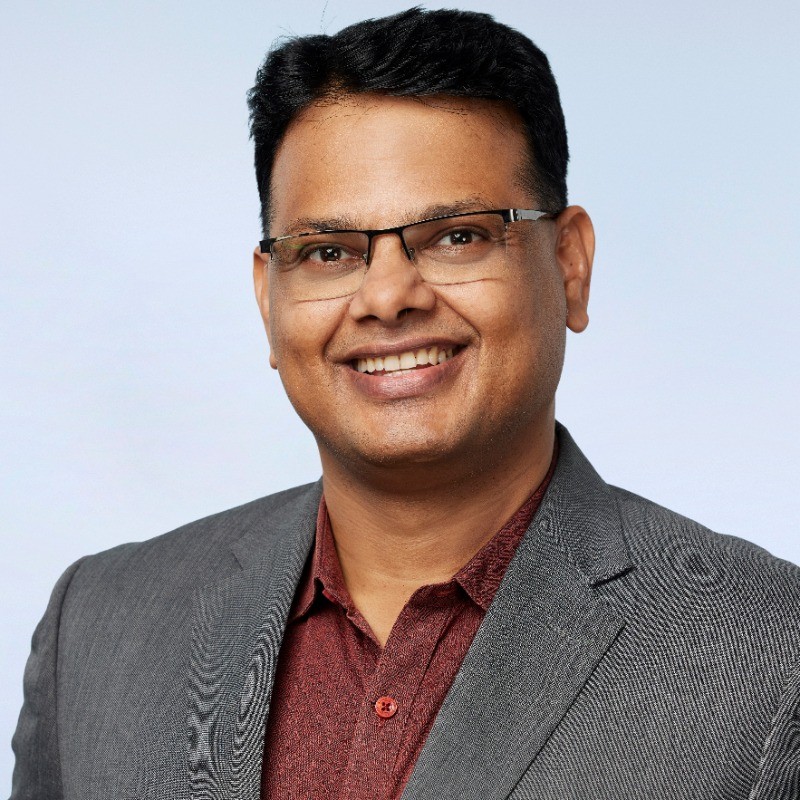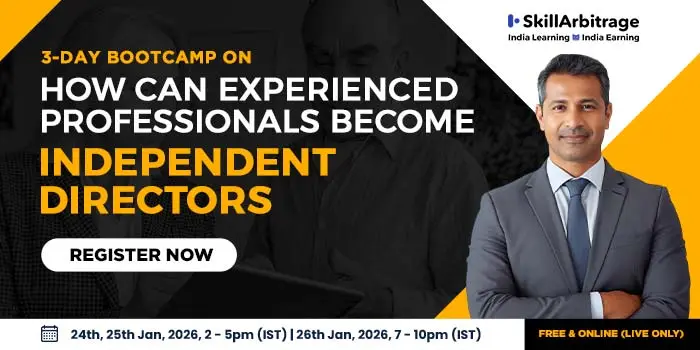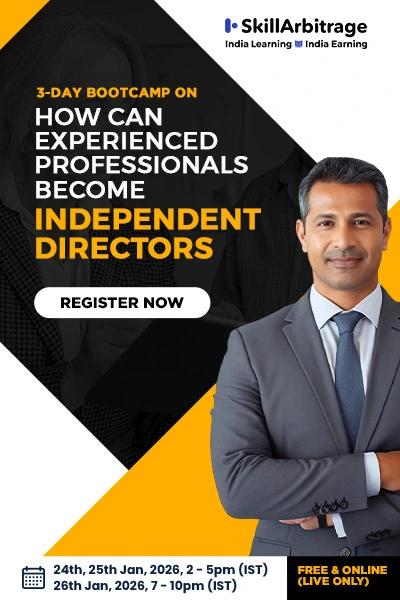Company Secretary
1852
0
0
“Success lies in understanding legal principles while addressing business complexities effectively.” – Rabindra Purohit, Vice President Legal, Compliance & Company Secretary at DFPCL.
This interview was taken by SuperLawyer Team
Posted on April 25, 2025
This interview has been published by Anshi Mudgal and The SuperLawyer Team

What pivotal moments influenced your decision to become a lawyer and CS, and how did your early experiences of life shape your career path?
The roots of this inspiring journey trace back to a tiny village in Odisha, nestled about 200 kilometres from Bhubaneswar. It was a place of simplicity and resilience, where school was held beneath the open sky, under the shade of a sprawling tree. When the rains came, they did not just wash the earth but also brought unexpected holidays, for there was no roof to shield the lessons.
Saturdays were special—they were days of collective effort and community spirit. The boys fetched water from nearby tanks, while the girls prepared the schoolyard, smoothing the earth with cow dung collected from the village. By Monday, the grounds were dry and ready to welcome another week of learning.
In this setting, where challenges were woven into the fabric of daily life, a young dreamer’s path began to take shape. The journey from studying under a tree to standing in corporate boardrooms reflects a life sculpted by grit and determination, rooted deeply in those formative experiences.
What inspired your decision to become a lawyer and CS, especially given your humble background? How did this journey shape your growth and influence those around you?
From a small village in Odisha to a disciplined boarding school, the journey was a test of resilience and determination. Limited to education until class seven in the village, the young dreamer moved to a nearby town, adapting to the rigor of boarding school life—waking at 4 a.m., managing chores like grocery shopping, and balancing academics. These experiences instilled independence and discipline.
Graduation brought a pivotal realization—the need to break free from constraints through education. This drive led to the bold decision of pursuing both company secretaryship and law simultaneously, an extraordinary feat accomplished with unwavering focus. Success transformed my life, taking me from humble beginnings to corporate boardrooms—a true testament to grit and ambition.
How has your transition from independent CS practice to working at a law firm to serving as an in-house counsel shaped your career? What do you enjoy most about your role?
My journey has been one of exploration and growth, shaped by diverse experiences across India. After completing my early education in Odisha, I moved to Chennai for my CS and later to Delhi to finish the course. These transitions exposed me to India’s rich diversity and built adaptability.
I began as an independent practitioner CS in Delhi, handling IPOs, mergers, and corporate actions. This entrepreneurial phase was rewarding, but I sought to expand my horizons. Moving into corporate law firms, I leveraged my CS expertise to deliver client-centric solutions, which set me apart.
My transition to in-house counsel began at Bharti Delmonte, working under inspiring mentors and gaining corporate strategy insights. Joining Vodafone during its historic acquisition of Hutchison was transformative, with a decade spent managing complex litigations, arbitrations, and large-scale challenges in telecom.
then at NIVEA, FMCG leading legal functions for a global brand has been a dynamic and fulfilling chapter. Each role has enriched my perspective, blending entrepreneurial spirit, legal acumen, and strategic leadership.
After two decades of experience working with major corporations, what significant changes have you observed in corporate legal practices, particularly in compliance frameworks and dispute resolution mechanisms?
Over two decades, I’ve witnessed significant shifts in corporate legal practice, especially in compliance and dispute resolution. Companies like Vodafone demonstrated the importance of strong ethical foundations and robust compliance frameworks, aligning processes with a clear vision. Their dedication to excellence was reflected in hiring outstanding professionals and anticipating challenges years ahead.
Recently, advancements in technology have streamlined compliance and dispute resolution mechanisms, improving transparency and efficiency. Coupled with a culture of ethics and governance, these developments have transformed the legal landscape. The combination of visionary leadership, structured policies, and exceptional talent remains the driving force behind corporate success today.
How do global corporations, especially multinationals, approach dispute resolution differently?
Litigation would always be the last resort for MNCs. It disrupts relationships and business continuity, so companies focus on resolving disputes amicably be it with governments, vendors, suppliers, or customers.
Multinationals emphasize customer-centric solutions. For instance, customer satisfaction was paramount. If a customer faced network issues, we responded with apologies or compensations rather than assigning blame. This empathy-first approach reflects their understanding that business thrives on happy customers.
Globally, companies also prioritize efficient mechanisms like mediation and arbitration, ensuring conflicts are resolved swiftly while preserving relationships.
Multinationals succeed not because of their global stature but because they create trusted brands, deliver value, and ensure compliance. It’s this forward-thinking, customer-first philosophy that drives their success with their leadership, empathy, and processes.
How do you handle intellectual property and brand protection for a Global brand you served?
Intellectual property is vital for innovation, identity and brand longevity, it begins with securing patents, trademarks, trade dress, and designs to convert creativity into valuable assets. Innovation drives product development, and legal measures ensure every aspect—from packaging to product shape—is meticulously protected.
Proactive strategies, such as monitoring markets for counterfeiting and unauthorized use, are critical in preserving brand integrity. Collaborating with enforcement agencies and implementing stringent safeguards are key, especially in diverse markets like India were consumer dynamics demand vigilance. This approach ensures the longevity of the brand, upholding its reputation and trust across generations and geographies.
Sir, how do you share your experience and impart education to new entrants in the legal field? What process do you follow to guide interns and inspire them to develop passion for the profession?
Internships are essential for shaping future legal professionals. At our office, we actively host interns sent by law colleges, consistently engaging two to three interns each month. We assign them meaningful projects, encourage research, and foster collaboration, ensuring they gain practical insights that prepare them for successful careers.
My advice to young lawyers is simple: the legal profession is a marathon, not a sprint. Patience, continuous learning, and adaptability are key. Success lies in understanding legal principles while addressing business complexities effectively. The challenge—and opportunity—is to merge theoretical knowledge with real-world solutions.
Mentorship and exposure to seasoned professionals are invaluable in this process. Personally, working with stalwarts in multinational companies has shaped my journey, proving that growth comes through steady, purposeful learning and commitment over time.
Sir, would you like to share some memorable achievements or recognitions from your career that had a significant impact on you and your approach to the kind of work that you have been doing?
Ups and downs are part of every professional journey. Sometimes, despite your best efforts, outcomes may not favour you—like a lawyer who wins and loses cases or a doctor who saves lives but cannot save all.
In my experience, one notable case involved a complex arbitration dispute. The matter escalated to the Supreme Court and back to arbitration, stretching over 15 years. For seven of those years, I was actively handling it, and by then, 30 crore rupees had already been spent on a 100-crore dispute. Such cases highlight the challenges and costs of prolonged litigation—it’s a fight that can go on endlessly if parties don’t seek resolution.
On the other hand, there have been many rewarding moments. For instance, in a recent case, one of our competitors was disparaging our brand. We took them to court and secured a landmark order from the Delhi High Court, which stands as a testament to the power of focused legal strategy.
My guiding principle, inspired by the Gita, is Kamrany vadhikaraste Ma Phaleshu Kada Chanan “Do your duty without worrying about the results”. The result is always a byproduct of consistent effort, dedication, and making the best use of available resources. Whether in tough challenges or noteworthy recognitions, this belief keeps me focused on delivering my best.
You’ve pursued dual qualifications as a company secretary and a lawyer. How has this combination benefited your career, and what advice would you give to learners following the same path?
The combination of being a company secretary and a lawyer is incredibly powerful. Company secretaryship provides deep insights into business operations, taxation, management, governance, and organizational behaviour. However, it doesn’t cover areas like civil law, criminal law, constitutional law, or jurisprudence—fields that are integral to legal practice. Law complements this by equipping you with a thorough understanding of the legal system.
When you combine the two, you gain a unique ability to bridge business challenges with legal solutions. This synergy is highly valued by companies, especially those requiring professionals to manage both roles efficiently. Many organizations prefer hiring individuals with dual qualifications to meet regulatory requirements while optimizing resources.
For learners, my advice is to see this combination as a long-term investment. It’s a strategic advantage that not only opens doors to versatile career opportunities but also helps you excel in leadership roles. The key is to approach your career with patience, commitment, and the understanding that success comes from integrating knowledge and applying it effectively over time. This is undoubtedly one of the best professional combinations for aspiring legal and corporate professionals.
What unique legal challenges have you faced in the skincare industry, especially when transitioning from telecom to FMCG?
Moving from telecom to skincare was a significant shift. Telecom revolves around services, technology, and infrastructure, like optical fibres and towers, while skincare is product-focused with manufacturing, supply chains, and distribution at its core.
The regulatory landscape is vastly different. Telecom is governed by sector-specific regulators, whereas FMCG and cosmetics must adhere to the Drugs and Cosmetics Act and legal metrology rules. The skincare industry, often treated like pharmaceuticals, requires strict compliance to ensure product safety and consumer trust.
Adapting to this new framework took time—about six months to fully absorb the nuances of manufacturing, distribution, and FMCG regulations. While some aspects like contracts and compliance were familiar, learning the specifics of product-centric laws and supply chain operations was essential.
Skincare demands understanding Skin Science, rigorous compliance, strict adherence to regulatory standards, and a deep understanding of its unique challenges and competition landscape. With focus and adaptability, I’ve successfully navigated this dynamic environment, ensuring robust compliance and operational excellence.
Outside of your professional life, what are some personal interests or hobbies that contribute to your overall well-being and work-life balance? How have you found that peaceful space for yourself?
Earlier, I was passionate about cycling, but I had to stop due to safety concerns in Mumbai. I then shifted to yoga, which has been transformative for me over the past couple of years. Yoga, along with meditation, helps me unwind and maintain a sense of balance. Swimming is another activity I enjoy whenever I get the time—it’s both relaxing and energizing.
Reading and listening to blogs are integral parts of my life as well. In our profession, staying informed is crucial, and I find reading to be both enriching and calming. When I have a longer break, I indulge my passion for travel—especially road trips. One of my most memorable adventures was driving from Mumbai to Ladakh; Mumbai to Kanyakumari by road with a GC friend, exploring India’s beauty by car.
These hobbies—whether yoga, swimming, reading, or traveling—serve as my personal escape. They not only help me recharge but also motivate me, adding meaning and joy to my life beyond work.
Get in touch with Rabindra Purohit –







No comments yet
Be the first to share your thoughts about this interview.